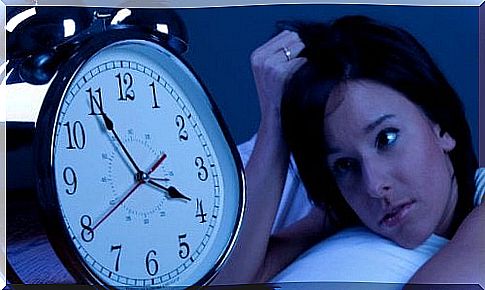What Causes Night Waking?

Do you wake up at the same time every night and no more sleep? Occasionally, this does not cause harm, but if the same phenomenon is repeated night after night, it already significantly affects the day’s alertness and mood. Sleep deprivation leads in the long run to both physical and mental symptoms such as headaches, depression, lack of concentration, exhaustion and anxiety. It is therefore important to learn more about nocturnal awakening and how to control it.
Waking up in the middle of the night and related symptoms

Nocturnal awakening and difficulty sleeping have been studied a lot, and there is nothing strange about it. Usually, waking up in the middle of the night and the difficulty of falling back again is due to anxiety, which changes brain function and awakens the body in the middle of the night. As such problems become regular, it is important to find out why the awakening is caused and how it can be prevented.
There are usually other symptoms associated with a nocturnal awakening, especially these:
- You suddenly wake up with a hard feeling of anxiety and restlessness.
- The heart beats and you feel in some kind of danger.
- Falling asleep is impossible. You will no longer get to the end of your sleep and this will increase your anxiety, nervousness, negative thoughts and insomnia.
- If you fall asleep again, sleep can be very light and you wake up tired in the morning.
- Regular nocturnal awakening between three and four in the morning at least a few times a week.
What causes night waking?
If you find yourself suddenly waking up at the same time of night, usually in the morning hours, it’s important to examine your mental well-being and think about whether something is bothering you or you’re experiencing anxiety about something. Anxiety and stress can be related to a relationship, work, family life, personal problems, or financial matters. Different people are anxious about different things.
All of the above can cause anxiety that may not be registered in conscious thinking, and anxiety only occurs during sleep when the brain responds to increased anxiety through sleep. Difficulty falling asleep is a common problem in stressed individuals, and when the end of a dream is finally caught, one can wake up violently in the middle of the night to heavily distressing feelings.
Let’s take a closer look at the phenomenon:
- Anxiety directly affects the central nervous system, which begins to make small changes to neurochemicals. The changes affect especially the systems responsible for sleep rhythm and alertness. This also directly affects various stages of sleep, such as important REM sleep.
- If falling asleep is difficult, the end of the sleep can finally be caught at midnight, but due to anxiety, sleep becomes fragmented and light, and the body finds it harder to enter a state of relaxing, regenerative REM sleep. The brain interprets the changes caused by anxiety as a threat, and this leads to a sudden awakening of the body in the middle of the night. Waking up is often accompanied by a frightening feeling that something is wrong.
- Awakening is the body’s natural reaction to anxiety.
How can the problem be treated and the quality of sleep improved?

If sleep difficulties and waking are caused by anxiety, it is important to deal with the causes of anxiety, such as stress and personal problems. By dealing with anxiety away you will sleep much better and feel very rested.
- It is important to accept that something is distressing and stressful. If you wake up in the middle of the night to distressing feelings and don’t want to become anything from sleeping anymore, this is a clear sign that something is wrong. Ask yourself what might potentially bother you : a hard rush at work, a big project at work, personal performance pressures, heartache, children’s school problems… The list goes on and on, as there are many worries in human life.
- Once you have identified the problems, make small changes in your life. Set priorities for yourself, cut down on unnecessary things, reduce stress, and relieve frustration and anxiety, for example, by exercising or exercising.
- Try a post-dinner walk. Spend at least half an hour outdoors in a peaceful walk, take a deep breath, relax and enjoy the things you see.
- When you come back home, take a relaxing bath or hot shower, read your favorite book for a moment and then climb into bed. Put the clothes for the next day ready and make sure the car keys are in your handbag. Close the laptop and do not rattle the phone in bed before going to bed. All of this greatly reduces the stress associated with the morning, and things not done are not monitored in the evening. Think nice things while lying in bed, don’t worry about the next day’s chores.
- Silence your mind and thoughts.
- Make sure the bedroom is in good condition, the sheets are clean and fresh and the air conditioning plays well. According to experts, the bedroom should be cool to optimize sleep, too hot or cold sleeps poorly. Don’t spend time in bed during the day, just dedicate the bed to sleeping.









